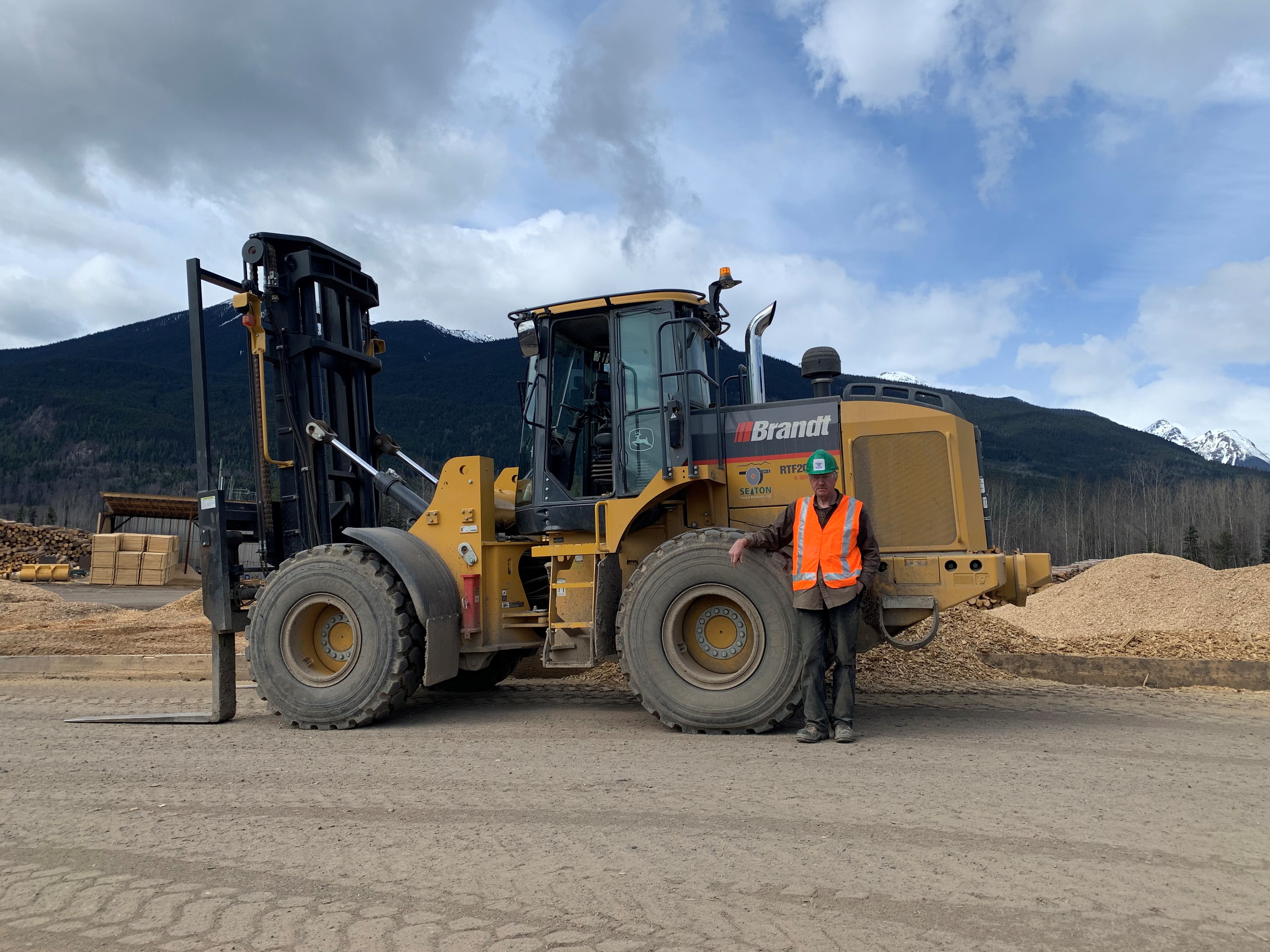In addition to providing local employment, Seaton Forest Products also aligns with Coastal GasLink’s focus on the environment by milling dry balsam logs that are cut at the same time as the ‘green’ logs, or logs with more moisture, that most mills look to process. These dry logs would otherwise be left in the forest due the bigger mills not being able to utilize them.
Mill forester and administrator Kirsteen Laing shared, “we work with larger mills who bring the dry balsam wood that they don’t use to our mill to build products such as pipe skids. This helps to remove waste – and fire hazards – from the forest. And, because we are using the wood, it doesn’t get intentionally burned as waste which means better air quality for the local community.”
A project as large as Coastal GasLink requires additional wood products that other mills in the area supply. Glenn Mattice, who helps connect the mills to projects through Trans-Pacific Trading Ltd., said he recognized early on that Coastal GasLink was a great opportunity for the local economy.
“As soon as I knew that Coastal GasLink was being built, I reached out to the prime contractors and subcontractors to see how our mills in the area could be a part of this opportunity. It’s very important for our mills – including those that are partially owned by First Nations – to find as much local work as possible to benefit our communities,” Glenn said.
Added Kirsteen, “I am very environment focused, and Andy is very industry focused, so our mill and the Coastal GasLink project are ways that we are able to bring our views together. But of high importance to both of us is being able to keep our employees working and support the livelihoods of Indigenous people. Without pipeline work, we couldn’t do that. Even with much of Witset shut down for COVID-19, our workers can come to work safely everyday.”

